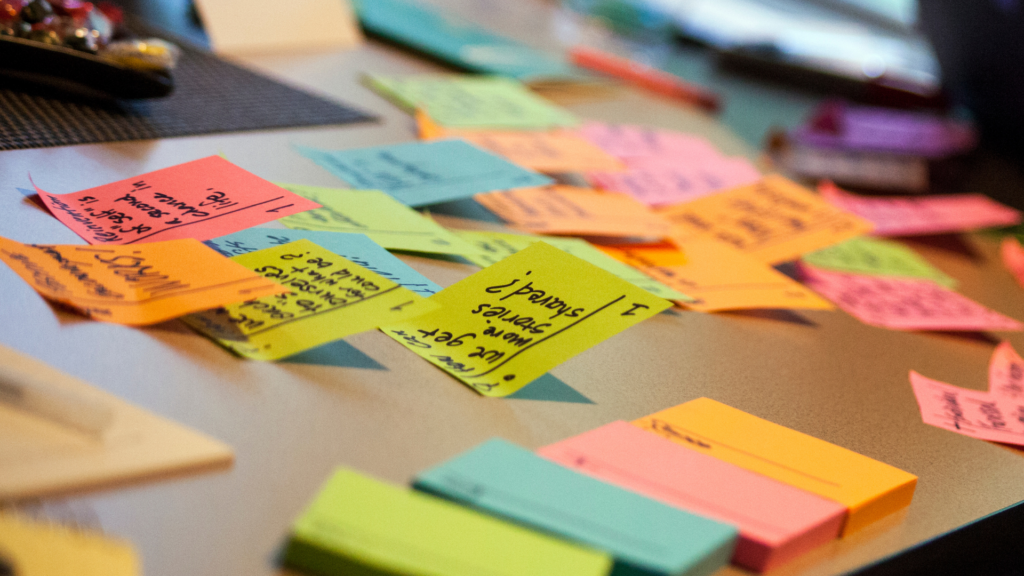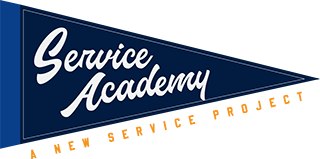
“What do you want to study in college?”
For years, my answer to that question was vague but simple: “Whatever helps me understand and tackle big problems and feel fulfilled along the way.”
But as college quickly approaches, I’ve had to get more specific about how my college experience can actually equip me to tackle some of the world’s most pressing issues.
I’ve been diving deep into this question, asking myself:
- Which skills and perspectives will best help me achieve my life and professional goals?
- What pathways offer the broadest opportunities to understand systems and grapple with the large-scale problems they create?
- How can I best leverage and extend my natural thinking patterns?
The more I explore, the more I’m drawn to an unexpected trio: math, computer science, and philosophy.
What Makes Them Interesting?
The intersection of these fields are a place where logic meets creativity, and complex problems offer opportunities for new, innovative solutions. Let’s break it down:
- Math: Offers a fundamental, powerful and unique way of understanding the world
- Philosophy: Cultivates a deeper understanding of myself and my role in the world, while developing my critical thinking and debating skills
- Computer Science: Provides dynamic methods for applying mathematical and philosophical concepts to create scalable solutions to real world challenges
I believe the overlap of these disciplines create a unique skill set and perspective that bridges abstract thinking and intentional, practical problem-solving — crucial for understanding complex systems in these fields and beyond. I am confident that this combination is crucial to gaining multifaceted perspectives and to contribute meaningfully to the world
Question: How do you think these abstract fields could work together to solve real-world problems?
Connecting the Dots
Recently, I read Douglas Hofstadter’s I Am a Strange Loop, which defines consciousness as a pattern arising from complex, self-reflective patterns in the brain. What struck me wasn’t just the fascinating subject matter, but how Hofstadter seamlessly blended math and philosophy to dissect it.
For most of my life, I thought of math and philosophy as separate fields — math’s technical, logical rigor seemed fundamentally opposed to philosophy’s deeply self-reflective deliberation. Hofstadter’s work showed me that there is a powerful overlap. Mathematical ideas can apply to how we view ourselves and our place in the world, and, vice versa — philosophical ones can apply to how we use logic.
This book, along with my readings on computer pioneers like Alan Turing, John von Neumann, and Claude Shannon, helped me understand the power in the combination of fields I once thought separate.
In short, mathematical ideas can reshape how we view ourselves and our place in the world, and philosophical concepts can transform how we approach problem understanding through logic and computation. Through the work of these geniuses and many more, computer science itself was formed from the philosophy of logic intersecting with mathematics.
In a way, these fields are actually natural extensions of the other: each one tasks itself with uncovering how the world works at a fundamental level.
I believe that the extension of this intersection offers me a robust foundation for understanding systems and their interrelationships which with hard work, luck and mentorship will allow me to contribute meaningfullyin today’s world.
Envisioning My Future: Where Will I Be in 10 Years?
When I picture my future self, I want to see someone who is:
- Challenged intellectually
- Working alongside a wide community of brilliant, driven individuals
- Solving problems that matter
- Making a positive impact in my life and empowering those in my life
- Striving for stability as a means to explore varied interests and create a fulfilling career
In essence, I want to deeply understand problems and myself, while having the critical skills to apply that knowledge for maximum positive impact.
My Pathway to Impact: Why Finance?
In addition to a career in the fields of mathematics, computer science, and philosophy, I am curious about how this integrated perspective could apply to the field of finance. While I’m open to many career paths, finance stands out as an intriguing application of the math, philosophy and computer science skills and experience I develop as an undergraduate. But why?
- Global Reach: Finance is deeply intertwined every sector and financial products can be an incredibly valuable tool in the process of creating change (ie. Grameen Bank using microfinancing to help people out of poverty)
- Analytical Application: Math and computer science skills are increasingly prized in the industry, especially at the intersection of finance and technology. Concurrently, finance and technology are both critical lenses through which to see systemic challenges and find the leverage points that have the ability to scale access to a broad range of resources globally
- Problem-Solving Potential: Financing is an important aspect of any impact project, and learning about how and why it is applied or not would undeniably help me empower myself and those around me to help achieve our goals
- Personal Connection: I grew up with finance integrated into my family, both as a profession for family members and as the profession of many of the adults and family friends I know. Their unique insights and access to a diverse network of smart, thoughtful people has been incredibly impactful to me
I know that the subjects I’m pursuing have broad applicability in fields beyond finance — that’s why I am pursuing them. The tech sector is just as fruitful. Academia offers fulfillment of the more abstract, intellectual type and the ability to shape the next generation of changemakers. Finance is currently just one potential pathway of interest.
Once again, I don’t know what the future holds, but right now, taking my skills in computer science, and algorithmic and philosophical thinking and applying it to finance-related challenges seems like a ready-made pathway to making an impact.
Beyond the Big Three: Broadening Perspectives
While math, computer science, and philosophy form my core focus, I’m also drawn to social sciences like economics and psychology because these fields both build off of many of the ideas at the core of math and philosophy and offer:
- Broader perspectives that complement analytical rigor
- Understanding of human contexts behind data
- Insights into behavior and decision-making
At Duke University, I’m excited to explore these subjects as interconnected threads in a larger global narrative both inside and outside of the classroom through connections with mentors, internships, and hopefully some international studies.
Duke’s programs will connect me with intellectually curious peers and push the boundaries of my thinking and skills. The abstract nature of math, the broad applicability of computer science, and the deep questions philosophers grapple with all offer endless possibilities for exploration and innovation.
Above all else, I am open to new ideas. I have been interested in other fields in the past, and will probably be interested in other fields in the future.
This post is an exercise in writing my ideas down to look back upon later, to chart my journey along the way. Over the rest of my gap year and early college career, I will continue to seek out people and experiences that will allow me to interrogate these beliefs with the goal of continuing to grow and shape my thinking.
Becoming the Problem-Solver the World Needs
Ultimately, mastering this combination of fields will empower me to:
- Achieve intellectual and meaningful success and, as a result, take the risks that come with the ambition of making meaningful contribution to the world
- Pursue a fulfilling career with people I care about and the freedom to explore systems from around the world
- Tackle complex global issues with a unique, multidisciplinary approach
This academic journey aligns closely with Service Academy’s mission to develop young leaders capable of driving systemic change. By honing these skills, I’ll be better equipped to create innovative service opportunities and empower other young people to make a difference.
Question: What’s your path to impact?
As I embark on this journey, I’m curious to hear from you:
- How do you see your studies or skills contributing to solving global challenges?
- What unexpected combinations of fields do you think could lead to breakthrough solutions?
Let’s start a conversation about how we can all prepare ourselves to be the changemakers our world needs.
Thank you for following my journey.
– Ryan Growney
About Our Gap Year Journey
We’re Ryan and Thomas Growney, twin brothers and co-founders of Service Academy.
After graduating from St. George’s School in Rhode Island, we’ve embarked on a gap year to explore how different cultures approach problem understanding, community engagement, service, and social innovation.
Our journey will take us to various countries, including South Africa, where we’ll participate in the Tilting Futures program, and the Himalayas, where we’ll be joining the NOLS for a high-altitude mountaineering challenge. Throughout this year, we aim to challenge our assumptions, broaden our perspectives, and gather insights that will help us enhance our approach to social impact back home.
Ryan is particularly interested in scaling service initiatives to develop young leaders, while Thomas focuses on the personal connections and community belonging that service creates. By sharing our experiences, we hope to contribute to a broader dialogue about service, mentorship, community engagement, and cross-cultural learning.
We invite you to follow along with our journey, engage with our reflections, and share your own insights about service in diverse contexts.
Together, we can work towards creating more meaningful and impactful youth service ecosystems that benefit both young people and their communities.
